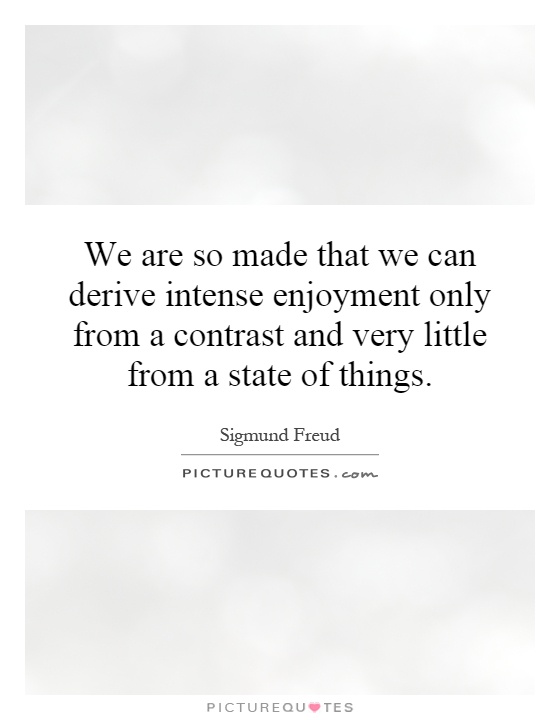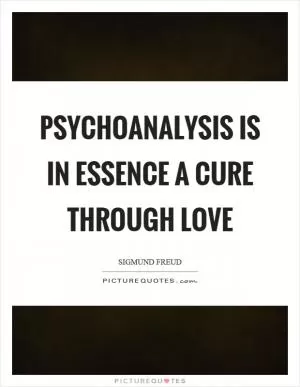We are so made that we can derive intense enjoyment only from a contrast and very little from a state of things

We are so made that we can derive intense enjoyment only from a contrast and very little from a state of things
Sigmund Freud, the renowned psychoanalyst, believed that human beings are inherently driven by the pleasure principle, seeking to maximize pleasure and minimize pain. In his exploration of the human psyche, Freud delved into the concept of contrast and its role in shaping our experiences and perceptions of enjoyment.Freud posited that we derive intense enjoyment from contrast because it creates a sense of excitement and stimulation. When we experience something new or different, it activates our pleasure centers and heightens our emotional response. This contrast can be found in various aspects of our lives, from the thrill of trying a new food to the excitement of traveling to a foreign country. The element of surprise and novelty inherent in contrast adds a sense of unpredictability and adventure to our experiences, making them more enjoyable and memorable.
Furthermore, Freud believed that contrast plays a crucial role in shaping our desires and motivations. He argued that we are constantly seeking to fulfill our unconscious desires and fantasies, which are often rooted in the contrast between our current state and an idealized version of ourselves or our lives. This contrast creates a sense of tension and longing, driving us to pursue our desires and seek out new experiences that can fulfill them.












 Friendship Quotes
Friendship Quotes Love Quotes
Love Quotes Life Quotes
Life Quotes Funny Quotes
Funny Quotes Motivational Quotes
Motivational Quotes Inspirational Quotes
Inspirational Quotes